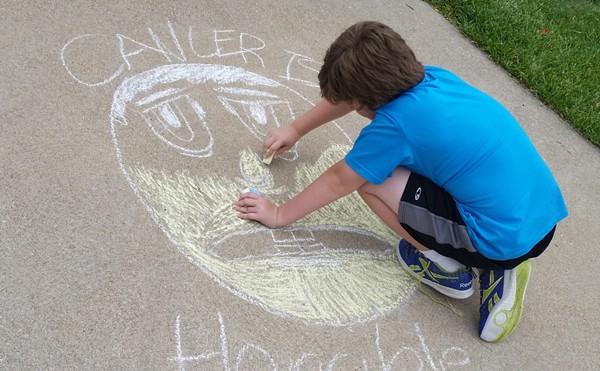"We try to teach them not just to buy a home but to buy into a community," says McDuffie, "get involved in a church, get involved in your children's school. If there is a drug house on your block, join the neighborhood-watch group to help get rid of them. Those are the kind of communities we want to build."
South Side National Bank has committed $4 million to help St. Louis Reinvestment Corp. and Churches Committed to Community Concerns (C-4) expand their program for families whose household income is less than $40,800 annually. The bank's commitment is expected to help make home ownership a reality for about 70 families.
Mercantile Bank began a similar program 13 months ago and has committed $1 billion to it during the next 10 years. Through Mercantile Bank, about $36 million has been loaned out so far in what the bank calls "Project Open Doors," which works with SLRC and other community groups. McDuffie estimates that about 160 houses have been sold in that program through SLRC.
In the new Jeremiah Project, named for Jeremiah's biblical directive to "build houses, settle down," many of the same guidelines will be used.
"It's been very successful, but unfortunately we have more than 100 people in our pipeline just waiting to be approved," says McDuffie. "So we tried to focus this summer on getting another bank on board. Nobody wanted to talk to us. Our people are low-income people. They have some credit issues. They have some slow pays. They live from paycheck to paycheck. They don't look real good on paper."
The goal is to make dependable people eligible to buy, especially those who would not qualify for loans were it not for the project, which includes teaching the buyers basic financial skills. To qualify, buyers must either meet income guidelines or buy a house in a designated census tract that is classified as low- to moderate-income. Often down payments are as little as $500 and expenses -- such as closing costs and mortgage insurance -- are waived.
The 15 hours of instruction educates the prospective buyer about financing, how to choose a real-estate agent, what kind of home to buy and how to make household repairs. The loan qualification also allows the lender to accept nontraditional credit references such as utility payments, child-care payments and rental history. Even payments to consumer credit counseling agencies or Chapter 13 bankruptcy will be accepted as "responsible credit history."
Kenneth Marschuetz, senior vice president of South Side National Bank at Grand and Gravois, sees the Jeremiah Project as a way to help recent Bosnian, Vietnamese, Chinese and Hispanic immigrants, particularly because, with C-4's commitment, the churches are involved.
"We've experienced an influx of people of all nationalities in this neighborhood. There is a language barrier. The communication problem is one of the biggest problems these folks have," says Marschuetz. "A lot of time the only people they trust are their parish priests."
McDuffie says the commitment by the South Side National Bank should help about 70 homebuyers in that area.
"When you do buy in the community, not only are they building their investment portfolio, they're also preserving the equity in their home," McDuffie says. "If they are involved in the neighborhood and helping stabilize the neighborhood, then the property values are going to increase.





